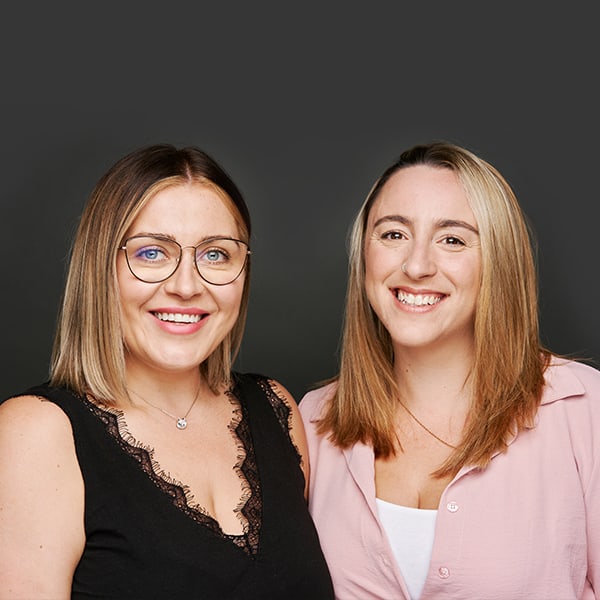First Time Buyers
- Access to competitive rates
- Specialist Mortgage Advice
- Relationships with a variety of lenders
What's On This Page?
Get In Touch
Home » First Time Buyers

First Time Buyers
Mortgages for First Time Buyers with Kelly Nicholson and Lauren Tebb.What is a First Time Buyer mortgage?
It’s a mortgage for people who have never bought a property before. If you’re trying to get onto the ladder and buy a property to live in, you’ll be classed as a First Time Buyer.
Some lenders class people who haven’t owned a property for a certain number of years as First Time Buyers also. But technically speaking, a First Time Buyer is somebody who has never owned a property before.
What are the typical requirements to apply for a First Time Buyer mortgage?
It really depends on the lender, but generally you’ll need an income so we can see what you can afford to borrow. Good credit is always helpful or at least some kind of credit rating in the background. Then your deposit is the third key factor.
What is the maximum amount that can be borrowed for a First Time Buyer mortgage?
This varies from lender to lender slightly, but the general rule is that you can borrow around 4.5 times your income. If you’re buying on your own, that’s based on your sole income, if you’re buying with a partner it’s on your joint income.
That is very generalised, because of course lenders have to factor in any loans, credit cards or credit commitments you have. But generally speaking it’s around 4.5 times your household income.
What is the minimum deposit required for a First Time Buyer mortgage?
Most lenders need at least 5%, although there is one lender on the market at the moment that’s offering 100% mortgages, where you don’t need any deposit. [Podcast recorded in August 2023] That is a very niche product and there is only one, so generally you need at least 5%.
What kinds of interest rates are available on First Time Buyer mortgages?
There are all kinds of different interest rates you can have, for whatever mortgage you’re applying for. The most common products are fixed interest rate, variable or tracker rate mortgages.
What are the pros and cons of fixed versus variable interest rate mortgages for First Time Buyers?
It really depends on your circumstances and how comfortable you are with the market. As a First Time Buyer, you potentially want some kind of stability. A fixed rate is going to offer you that – you’re going to know exactly what your monthly payment is for the time you’re fixed in for.
Whether it’s two, three or five years, that rate’s not going to change and your monthly payment will stay the same. On the other hand, variable rates are quite popular just now because interest rates obviously are fluctuating quite a lot.
People are wondering if interest rates are going to come down, and they potentially want to benefit from that as soon as they do. That’s the benefit of going on a variable rate. The downside of that is if interest rates go up, your monthly payment could go up too.
What government schemes are available to help First Time Buyers?
There are a few schemes available. The Mortgage Guarantee Scheme was brought out post pandemic. Mortgages changed a lot during Covid and most lenders would only accept a minimum of 10% deposit – which obviously made it very difficult for a lot of First Time Buyers.
The Mortgage Guarantee Scheme just meant more lenders were able to offer up to 95% Loan to Value mortgages. The government guarantees that if you default for any reason, they cover any difference in between the deposit amount. It was less risky to lenders, so more and more came back on the market at 95%.
The Shared Ownership scheme is where you can buy a portion of a property – usually 25% to 75% of a property value. You rent the other portion. Again, it just allows more people to get on the property ladder with a smaller deposit, or if your affordability for the time being is lower.
Another scheme is the First Home scheme, which is limited to a number of areas or developers. It allows you to buy a new build property at 30% less than the market value. Again, it helps if you only have a certain deposit saved or you’re limited by affordability.
The Right to Buy scheme has been around for many years. It allows people who are renting a property from the council or a housing association to buy the property. You have to have rented it for a certain amount of time and you get a great discount depending on the rent you’ve paid over the time you’ve lived there.
Those are the main government schemes that are out there to help people now and they work really well.
Speak To an Expert
What documents do I need to get preapproved for a First Time Buyer mortgage?
Make sure you have documents relating to your income, this could be your latest three months’ payslips, self-employed income proofs, benefit income proofs and bank statements. We will always advise you of exactly what is needed based on your personal circumstances.l
It’s handy for us to see them so we can see what your circumstances look like and be prepared for what the lender is going to ask later down the line, when you actually come to the full mortgage application.
Other than that there are no documents you need at pre approval stage. But we will explain what a full mortgage application is going to look like and what you’re going to need at that point.
What are the steps to follow when applying for a First Time Buyer mortgage?
Start sooner rather than later – before you find a house. A broker will give you an idea of your affordability and get an Agreement in Principle in place. That will confirm your credit is okay and that you can definitely buy the kind of properties that you are looking at.
There’s nothing worse than someone falling in love with a property, having an offer accepted and then all of a sudden they can’t get a mortgage. So find out what’s affordable to you before you go looking at property.
After that point it’s a case of getting an offer accepted and starting the full mortgage application. That’s when we need up to date documents – payslips, bank statements, proof of deposit – everything that a lender could possibly ask for to prove you’re in a position to buy this property. You will also need to instruct a solicitor at this point to start the legal process.
We start the process for the mortgage, the solicitors start their legal process and we hold your hand all the way through it until you get your keys.
What are the most common mistakes to avoid when applying for a First Time Buyer mortgage?
The biggest mistake is coming into the process too late – when you’ve already fallen in love with a property that might not be attainable for you. Always start as early as you can.
Also, try and keep a clean credit record. Find out if you have any adverse credit history and make sure you keep up with current payments. Making sure you’re on the electoral roll will really help too.
What happens if I miss a mortgage payment on a First Time Buyer mortgage?
With any mortgage, keep on top of those mortgage payments. Missing one can affect your mortgage applications in the future. If you need to remortgage in a few years, for example, having a missed mortgage payment on your record can affect your ability to get preferential interest rates.
We’ll discuss mortgage protection with you, so if you are ill or unable to work you can always keep on top of your mortgage.
If there is one month where the direct debit hasn’t gone out on time or it’s paid a couple of days late, that won’t necessarily ruin your chances moving forward, but a regular missed monthly payment is not going to look great on your credit and could cause you problems in future.
Can I qualify for a First Time Buyer mortgage with bad credit?
Potentially, yes. There are lenders that specialise in mortgages for people with some blips on their credit file. Get a copy of your credit report and send it over to us. We will have a look at that for you and offer advice on how to improve you if necessary.
We can speak to the lenders. We will know where to go and who to have the conversations with. That’s going to give you the best opportunity possible to get that mortgage with your credit history details.
What else do we need to know about First Time Buyer mortgages?
It’s easy for it to be a terrifying experience when you’re deciding to buy a property, but it doesn’t need to be that way. We’re here to talk you through every step of the way, from start to finish.
It can be scary but buying a property is a huge achievement. So having somebody on your side to answer any questions you have and help you with the paperwork really does make a difference.
No question is a stupid question. You need to understand what you’re buying into and you need to be fully confident. We are more than happy to take all the time in the world to make sure you’re comfortable at every point throughout the process.
Your home may be repossessed if you do not keep up with your mortgage repayments.
